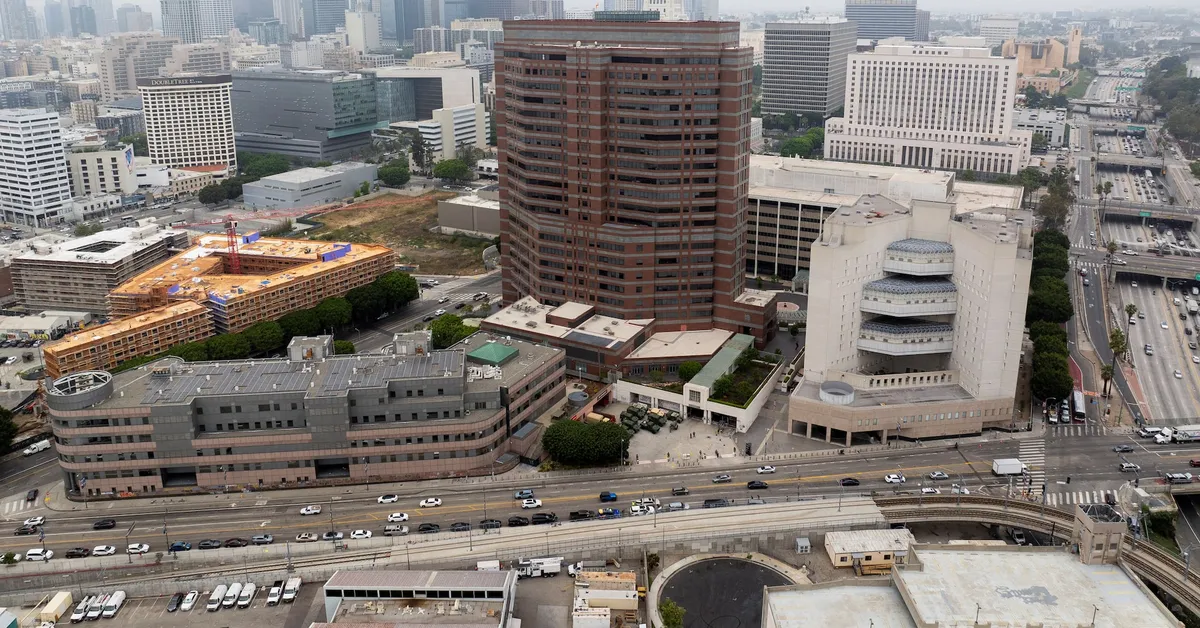
In a significant escalation of federal involvement in local protests, hundreds of U.S. Marines arrived in Los Angeles overnight, with more expected to follow on Tuesday. This military deployment comes under orders from President Donald Trump, who has also activated 4,000 National Guard troops to assist in quelling ongoing demonstrations that have erupted in response to immigration raids initiated by the Trump administration. The decision has faced backlash from California Governor Gavin Newsom and other local leaders.
Public outrage has surged in Los Angeles following a series of immigration raids launched by the Trump administration on Friday. Despite the tensions, local officials reported that demonstrations on Monday were largely peaceful. Mayor Karen Bass informed KABC that over 100 individuals were arrested, but emphasized that the majority of protesters acted nonviolently.
Approximately half of the 700 Marines ordered by Trump arrived in Los Angeles on Monday night, with the remaining troops scheduled to enter the city on Tuesday, according to a U.S. official. The U.S. military did not respond immediately to requests for comments on this deployment. The Marines will primarily focus on protecting federal property and personnel, working in conjunction with the National Guard troops already present in the area.
As of Monday, around 1,700 National Guard troops were deployed in greater Los Angeles, with additional forces expected to arrive shortly. President Trump has characterized the protests as a “violent occupation,” a claim that both Governor Newsom and Mayor Bass have deemed exaggerated. Newsom accused Trump of intentionally inflating the situation and argued that the president’s actions complicate local law enforcement's ability to manage the demonstrations effectively.
In a social media post on Tuesday, Trump claimed that Los Angeles would be “burning to the ground” had he not deployed troops to the city. While some protests have included isolated incidents of violence, many have remained peaceful. However, there have been instances of demonstrators throwing objects at police, blocking highways, and setting vehicles on fire. Reports indicate that businesses, including an Apple store and a CVS pharmacy, have faced looting.
In response to the unrest, police utilized various crowd control measures, including firing projectiles such as pepper balls, flash-bang grenades, and tear gas. On Sunday, authorities arrested 21 people on multiple charges, including attempted murder and assault on an officer. Officials anticipate more arrests as they continue to review surveillance footage from the protests.
Los Angeles Police Chief Jim McDonnell stated that the department had not received prior notification of the Marines’ deployment, raising concerns regarding the logistical and operational challenges this presents. Trump's decision to send active military troops to Los Angeles has intensified tensions with Governor Newsom, who filed a lawsuit asserting that the activation of National Guard troops without the governor's consent is illegal. This deployment marks the first instance in decades of a president deploying troops for such purposes without a request from a sitting governor.
Newsom criticized the military presence, stating on social media that it was not about public safety but rather about bolstering the ego of a "dangerous president." Senator Jack Reed, the top Democrat on the Senate Armed Services Committee, expressed grave concern over the active-duty Marines' deployment, emphasizing that the military should not be involved in law enforcement on U.S. soil.
The protests are part of a broader backlash against Trump’s immigration policies, which many Democrats and immigrant advocates argue are causing undue family separations. U.S. Homeland Security Secretary Kristi Noem has pledged to continue operations aimed at apprehending suspected immigration violators, asserting that the protests are lawless and blaming local Democrats for harboring undocumented immigrants in sanctuary cities.
On Monday, hundreds of demonstrators gathered outside a federal detention center in downtown Los Angeles, chanting slogans and waving flags. National Guard forces formed a barricade to control the crowd, and as tensions escalated, police began to disperse the gathering using gas canisters. The protests have also spread to neighboring regions, with reports of demonstrations occurring in Orange County and at least nine other U.S. cities, including New York, Philadelphia, and San Francisco.
The situation continues to develop as authorities monitor the protests and respond to emerging challenges. The involvement of active-duty military forces in civilian unrest remains a contentious issue, raising questions about the balance between maintaining order and respecting citizens' rights to peacefully assemble.